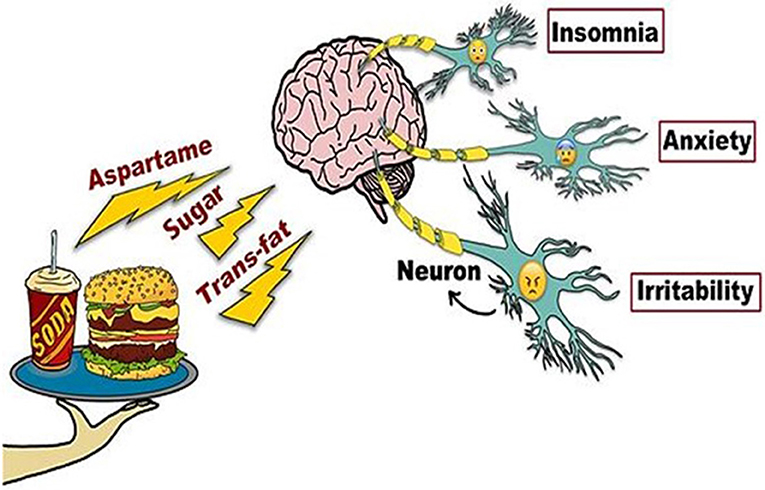
High-Fat, High-Sugar Diets Could Be Undermining Your Brain’s Navigation System, New Study Reveals
Before you indulge in a donut or a serving of crispy french fries, think about this: your beloved comfort foods may be stealthily reducing your ability to find your way in the world. Innovative new research from the University of Sydney has found that diets rich in saturated fats and refined sugars can hinder your directional skills by adversely impacting a crucial brain region, even among young, otherwise healthy individuals.
In a groundbreaking human study featured in the International Journal of Obesity, researchers explored the connection between eating habits and spatial navigation—a key cognitive ability that allows us to orient ourselves, remember specific places, and plan routes effectively. This study is the first to investigate this link in humans as opposed to animal studies.
A Virtual Labyrinth with Real Implications
To examine the hypothesis, scientists utilized a cutting-edge virtual reality maze. Participants—55 college students in their late teens and early 20s—were instructed to maneuver through the maze to discover a concealed treasure chest, relying solely on landmarks found throughout the setting. After six trial runs, they were challenged to recall the location of the chest using only their memory.
The findings were remarkable: those who frequently consumed high-fat, high-sugar diets significantly struggled in recalling the treasure chest’s position compared to those with healthier dietary practices. This outcome remained consistent even after considering variables such as body mass index (BMI) and working memory, indicating a distinct, diet-related impact on spatial cognition.
“The encouraging news is that we believe this situation can be easily reversed,” stated Dr. Dominic Tran, the study’s lead author and a psychology researcher at the University of Sydney. “Modifying your diet can enhance the health of the hippocampus, thereby improving our navigation skills, whether we’re exploring a new city or finding a new way home.”
Understanding the Hippocampus
The hippocampus—a seahorse-shaped structure located deep in the brain—is well recognized for its significance in learning and memory, especially in spatial navigation. While previous animal studies revealed that this brain area could be swiftly affected by diets high in unhealthy fats and sugars, the recent study suggests that similar processes may occur in humans—and at stages of life much earlier than previously believed.
What’s particularly concerning is that cognitive alterations were noted in young adults, a demographic typically considered to be at the height of cognitive capability. This discovery underscores the urgency of current public health dialogues regarding the dangers of Western dietary habits, characterized by elevated levels of processed foods, red meats, refined sugars, and saturated fats.
Beyond Just Physical Well-Being at Stake
For years, researchers and health professionals have alerted us that diets loaded with refined sugars and saturated fats elevate the chances of obesity, heart disease, diabetes, and certain types of cancer. Now, growing evidence indicates that such eating patterns can also compromise brain function—even before more apparent symptoms manifest.
“This study provides confirmation that diet significantly impacts brain health in early adulthood, a time when cognitive abilities are typically robust,” Dr. Tran expressed. “We’re observing noticeable shifts in brain performance even without substantial weight gain.”
In fact, numerous studies have associated poor dietary choices with accelerated cognitive decline and an increased probability of dementia later in life. Yet this latest research illustrates that the effects might begin much sooner, with our diets influencing how effectively we navigate—and remember—our surroundings.
Your Inner GPS: A System Worth Safeguarding
For anyone who has ever made a wrong turn despite having frequented a location numerous times—or relies heavily on GPS navigation systems—the implications may hit close to home. While aging and genetics undoubtedly contribute to cognitive decline, the foods you consume today may have a direct impact on your brain’s daily performance.
The researchers stress that the harm is not necessarily irreversible. Transitioning to a diet abundant in whole grains, lean proteins, healthy fats, fruits, and vegetables can rejuvenate hippocampal health and enhance memory and navigation abilities. Unlike age-related memory deterioration, the spatial memory issues triggered by diet seem to be reversible with appropriate lifestyle adjustments.
A Call to Action for Young Adults
Emphasizing the significance of nutrition among younger individuals, this study acts as an alert: detrimental eating patterns do not postpone their effects until middle age. The decisions you make in the cafeteria, at the drive-through, or in the snack aisle may influence not only your physical well-being but also your cognitive functions.
While additional research is essential to uncover the underlying biological processes and long-term implications, one thing is evident—what you eat doesn’t merely affect your waistline; it also shapes how you remember, navigate, and engage with your surroundings.
In an increasingly digital world where navigation tools guide us from point A to B, it’s easy to overlook the innate navigation abilities we possess. However, if you cherish the skill of finding your way—be it through a forest trail or the streets of a novel city—it may be vital to reconsider your dietary choices.